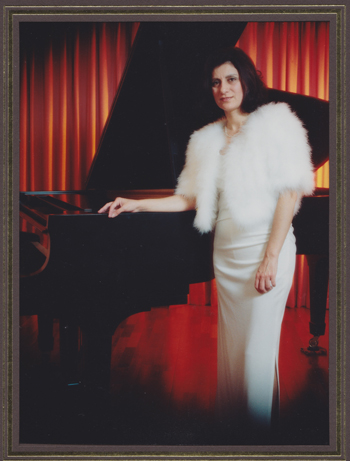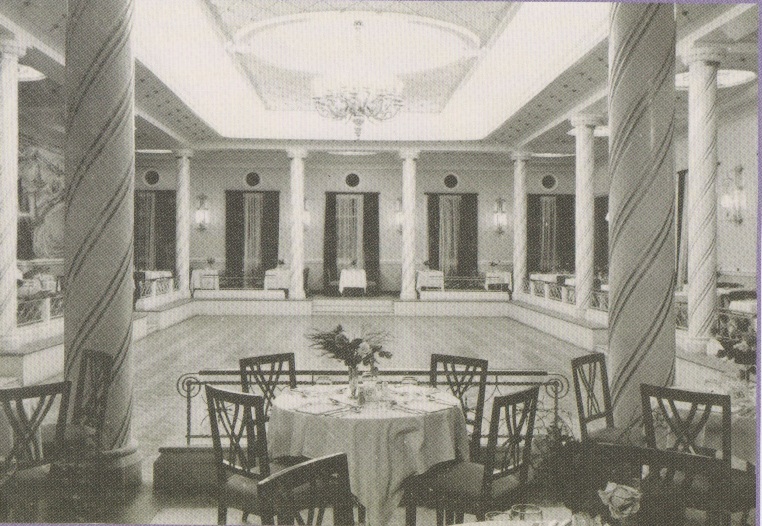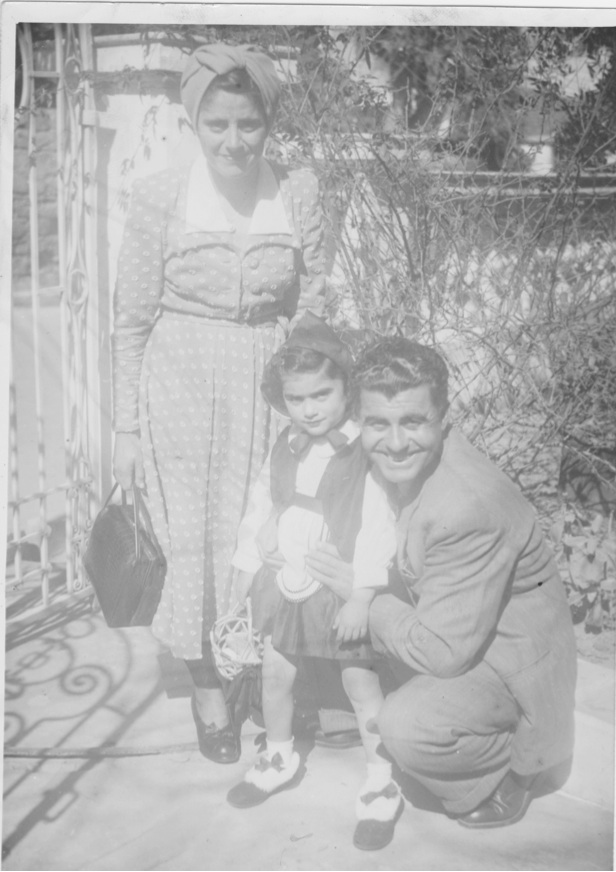About Cilia Petridou
 Greek-Cypriot pianist/composer Cilia Petridou was born in Famagusta Cyprus in 1945.
She was taught by her mother from the age of four until the age of nine, when she entered the Greek Lyceum in her native town. She performed her first piano concerto, Mozart’s K. 488, at the age
of eleven in Nicosia, at the Theatre Royal.
Greek-Cypriot pianist/composer Cilia Petridou was born in Famagusta Cyprus in 1945.
She was taught by her mother from the age of four until the age of nine, when she entered the Greek Lyceum in her native town. She performed her first piano concerto, Mozart’s K. 488, at the age
of eleven in Nicosia, at the Theatre Royal.
By the age of fifteen Cilia had been awarded the Mozart Medal, the highest award in the whole of Cyprus, and had been hailed as the successor to Gina Bachauer. When she was seventeen she offered a full programme for her Diploma Examination, which was open to the public, and which ended with a performance of Beethoven’s Third Piano Concerto. The examiner, Solon Michaelides, gave a short speech afterwards and finished by saying that he had been examining for thirty years, in Cyprus and abroad, and that this was the first time he had heard such a captivating performance by an examinee.
Two years later, when the Greek Lyceum moved to its new purpose-built home - a state-of-the-art centre for the performing arts - its director, M. Ioannou, approached Cilia’s mother and said that she would like Cilia to become its director for life after her studies abroad, adding that it was only Cilia that she trusted for this post. Sadly, Famagusta has been a “Ghost Town” since the Turkish invasion in 1974.
Cilia studied at the Vienna Academy and the Royal Academy of Music in London. She furthered her studies privately under Harold Craxton and Kendall Taylor. A chance meeting with a music lover who introduced her to his circle enabled Cilia to perfect her piano playing, increase her repertoire and test her programmes as she prepared them. Cilia has played several times live on Cyprus radio. Unfortunately, her playing came to an abrupt end in 2002 after major surgery.
When she finally realised that performance could no longer be part of her life, she started to look through her compositions. The first composition she stumbled on was the Lullaby for Soprano and Piano, which brought a smile to her face and encouraged her to type out some of her songs. These she showed to Eileen Hamilton, who expressed her appreciation of them.
It is ironic that composition — which had been a much-loved hobby — has now taken centre-stage. Through Alison Smart and Lesley-Jane Rogers, who have recorded the songs shown to Eileen Hamilton, she has been introduced to a group of very gifted musicians who seem to have enjoyed learning and recording some of her chamber and vocal music.
Following the musicians’ preparation for performance has given her immense satisfaction.
Comments by Solon Michaelides about her piano playing:
- "Delightful ... Most Delightful ... Pianist -"
- "Her interpretative powers ... are simply stunning -"
Solon Michaelides was moved by her interpretation of his composition “The Lyre of Sappho”, which impressed him with its intellectual grasp and emotional depth.

Ballroom of Ledra Palace Hotel
Nicosia

Cilia with her parents
as "Little Red Riding Hood"
after a "Children's Carnival Dance"
at the Ledra Palace Hotel
Her first
"platform experience"
Below are some of the critic's comments about Cilia's music.
FANFARE (1):
Cilia Petridou is a Greek-Cypriot pianist and composer, born in
Cyprus in 1945. Her music shows a confluence of Eastern and Western
elements, not surprising, given her heritage. This is evident in the
very first song (most of these “songs” are actually duets), The
Grocer, which although tonally cast, includes piquant minor second
interjections from the piano, and modal harmonies that one
associates with Greece going back centuries. Sirens, while clearly a
product of the same composer, evokes quite a different mood, and one
feels the allure that is said to have led sailors to their doom.
Each of the songs, which also include Kyrenia, What Love Is,
Mirrors, Optimism, a three-song cycle called The Siege , and Evtho,
is well crafted and evocative of the Greek text being set
(translations are provided). The two sopranos have light and
pleasant voices, and blend together well in their duets. The lighter
of the two is Lesley-Jane Rogers, whose voice occasionally verges
towards a Broadway style, but it doesn't seem misplaced in this
music. The one less-than-fully successful work on the song CD is the
three-movement cycle, The Siege. There is simply not as much variety
in key center and texture as I would like to hear in a work of 24
minutes duration.
The final work on the first CD is Evtho,
which adds a violin, clarinet, and cello to the piano in the
accompaniment to this 19- minute mini-drama involving a mother and
her family. Also included in the vocal mix is a baritone part, sung
by Lukas Kargl. The additional instruments are handled well, and add
welcome colors to the drama of the setting.
The second disc
in this set is devoted to instrumental chamber music, most of which
is drawn from incidents in the composer's Cypriot upbringing. It
opens with her piano quartet, Memories , indeed an elegiac work,
replete with gentle long-flowing lines in the strings underpinned by
subtle and wandering harmonies. Melodic figures, such as an
ascending line containing the pitches A, B ? , C ? , D, again
suggest the composer's birthplace. The rather static second
movement, in fact, evokes the timelessness of a locale unchanged
through the centuries, although its title, “First Loss,”
commemorates the composer's first memory of death that intruded into
her life during her teens when she lost three friends.
Petridou's string quartet bears the unusual title The Collar , and
musically depicts an incident from the composer's childhood that
involved her confrontation by the then-occupying British soldiers,
who took it upon themselves to see that when the order was given,
there were no schoolchildren out and about on the streets (Petridou
was grabbed by the collar by a soldier during one such incident).
The work is consequently rather restless and agitated, even while
maintaining rather secure tonality throughout its brief eight-minute
course. The same, other than its brevity, may be said about the
piano trio Black July 1974 , a work remembering the Turkish invasion
of that year, resulting in the division of the capital city as the
last remaining such city in Europe. Its movements recall the
composer's leaving Cyprus in 1965, her lament for the once- thriving
city of Famagusta and her happy memories resulting from Cyprus's
independence in 1960. The final movement is entitled
“Optimism—Sadness,” and portrays the actual invasion. The recital is
filled out by four short character pieces for violin and piano,
likewise drawn from the composer's experiences and memories.
This is heartfelt music, played and sung with conviction. Even
though a sense of direction and movement in her music is not always
clear (although often it is), its pathos will win over many
listeners, and I recommend it accordingly. The booklet gives a good
picture of the composer and her times, along with biographies of the
performers. Other production values, such as recorded sound are also
good on this U.K.-produced disc.
David DeBoor Canfield
AMERICAN RECORD GUIDE:
I can think of very few composers who might be more appropriately
described as "neo-classical" than Cilia Petridou. In both the songs
and the chamber music included in this two-disc set there is a
melodic and harmonic language that recalls 18th- or 19th Century
European classical traditions, both in terms of musical vocabulary
and expressive and dramatic temperament.
The listener is not
likely to mistake this music for actual 18th- or 19th Century works.
A modern sensibility about harmony and voice-leading appears from
time to time, and the forms of pieces or movements are not
"classical". Some songs like 'What Love Is' deviate a bit from this
general aesthetic, incorporating an almost show-tune style of
harmony and attitude. Still, the predominant mode is neo-classical,
with an added Mediterranean flavor, presumably owing to the
composer's Greek heritage.
Her piano quartet. Memories, and
her piano trio, Black July 1971, are both somber tributes to the
tumultuous political history between the UK and Greece. Petridou was
affected directly as a child, and she emigrated to the UK in the mid
60s. All of the music is accessible and easy to appreciate for its
craft and heart-felt expression.
George Adams
FANFARE (2):
The first CD in this double album of Cilia Petridou's music is
given over to vocal music, most of it for two sopranos and piano—a
highly effective combination that more composers ought to explore.
The flirtatious opening song, The Grocer , is sung by Alison Smart
and Lesley-Jane Rogers with evident enjoyment, almost like a
latter-day version of the “Cat Duet” misattributed to Rossini.
Sirens is something I don't think I've heard before—a free-standing
vocalise- duet (there are some in opera, sure, but I don't know of
one conceived as such from the start); though the title may suggest
allure, in effect it's a wordless lament. Petridou's own text makes
the next lament—for her lost homeland— specific in intent, with the
two overlapping voices suggesting some kind of intensely felt
funeral ceremony. What Love Is , the first solo song here, is bluesy
and teasing; Mirrors likewise has a jazzy, smoky quality. The dark
tone of Optimism belies its title, though it is briefly relieved as
the music proceeds.
The Siege is an extended scena, 24
minutes in length, two extended panels hinged on a brief central
section, the voices keening movingly in their sense of loss; the
music takes on a hieratic quality in its closing pages, and the coda
is a representation of bells. The piano parts in some of these
compositions are sparse, oddly from a pianist-composer (perhaps
because of the working conditions she explained to me); in The Siege
it sounds almost like the reduction of an orchestral texture—and,
indeed, The Siege might respond very well to orchestration, at least
for string, and perhaps for full orchestra, not least since it comes
close to stalling at times, and long lines in the accompaniment
would maintain the momentum. Evtho , another extended setting, 20
minutes in duration, adds a baritone to the two soprano voices and a
violin, cello, and clarinet to the piano, though the hesitancy of
the other pieces endures; The Grocer apart, not one of these works
develops its own momentum, which is part of what gives The Siege and
Evtho their ritual quality—it's as if you are waiting for some
ceremony to unfold. She did say that she was unfamiliar with
classical harmonic procedures until late in her adolescence; perhaps
this formal, deliberate manner is an echo of the music she heard
around her in her younger days.
Turning
to the CD of Petridou's chamber music, I realize with hindsight what
she meant when she said it “will probably appeal more to Western
audiences” than the songs—although Petridou's oddly diffident
writing style takes some getting used to. There is a degree of
amateurishness to it, for reasons that her interview makes clear,
but once you settle down to its rather stop-and-start way of
unfolding, its essential honesty begins to make its mark—and the
very want of fluency gives it an innocent charm, not least since it
is often very lovely.
The piano quartet Memories dates from
1979 and, as the title suggests, evokes the Cyprus of Petridou's
childhood. It opens with a bashful exchange of phrases between the
participants that grows slightly more confident but never quite
settles into its stride; the second movement is another lament, the
more effective for its understatement; and an attractive folk tune
launches the finale Attacca and provides the material for its gently
evolving development. Like Memories , the single-movement string
quartet The Collar (the composer's booklet note explains the point
of the title but doesn't date the piece) feels its way forward
through a moving haze of folk-flavored recollections. The piano trio
Black July 1974 (1979) makes its intentions clear in its title: It
is a three-movement elegy for the life in northern Cyprus that the
Turkish invasion was to rob from its Greek inhabitants. Perhaps
anger serves Petridou well, since the first movement at last
generates a degree of momentum—initially, indeed, the music
occasionally recalls Beethoven—but the impulse is soon dissipated.
The second movement is a haunting “Lament for Famagusta” and the
third supposedly “recalls happy times during the first months of
Independence” (in 1960)—but it is hardly less sorrow-laden than the
rest of the music here; the same applies to the finale, which opens
in bright-eyed innocence and soon turns to sadness.
The
remaining four works on the CD are character-pieces for violin and
piano (none of them dated in Petridou's booklet notes), two either
side of two minutes, the other two flanking five; the mood is the
one already firmly established.
The performances on both CDs
are sensitive and thoughtful; I wondered whether a more assertive
approach might have got the chamber works out of second gear—but it
might also have bullied these tender plants beyond their carrying
capacity. Anyway, the uniformity of the idiom doesn't serve the
music well when you line it all up in a row; in a concert, coming
between two other composers, Petridou's atmospheric and thoughtful
idiom would offer an attractive contrast. The recorded sound is
entirely natural, and the booklet offers the full Greek text of the
songs and English translations.
Martin Anderson